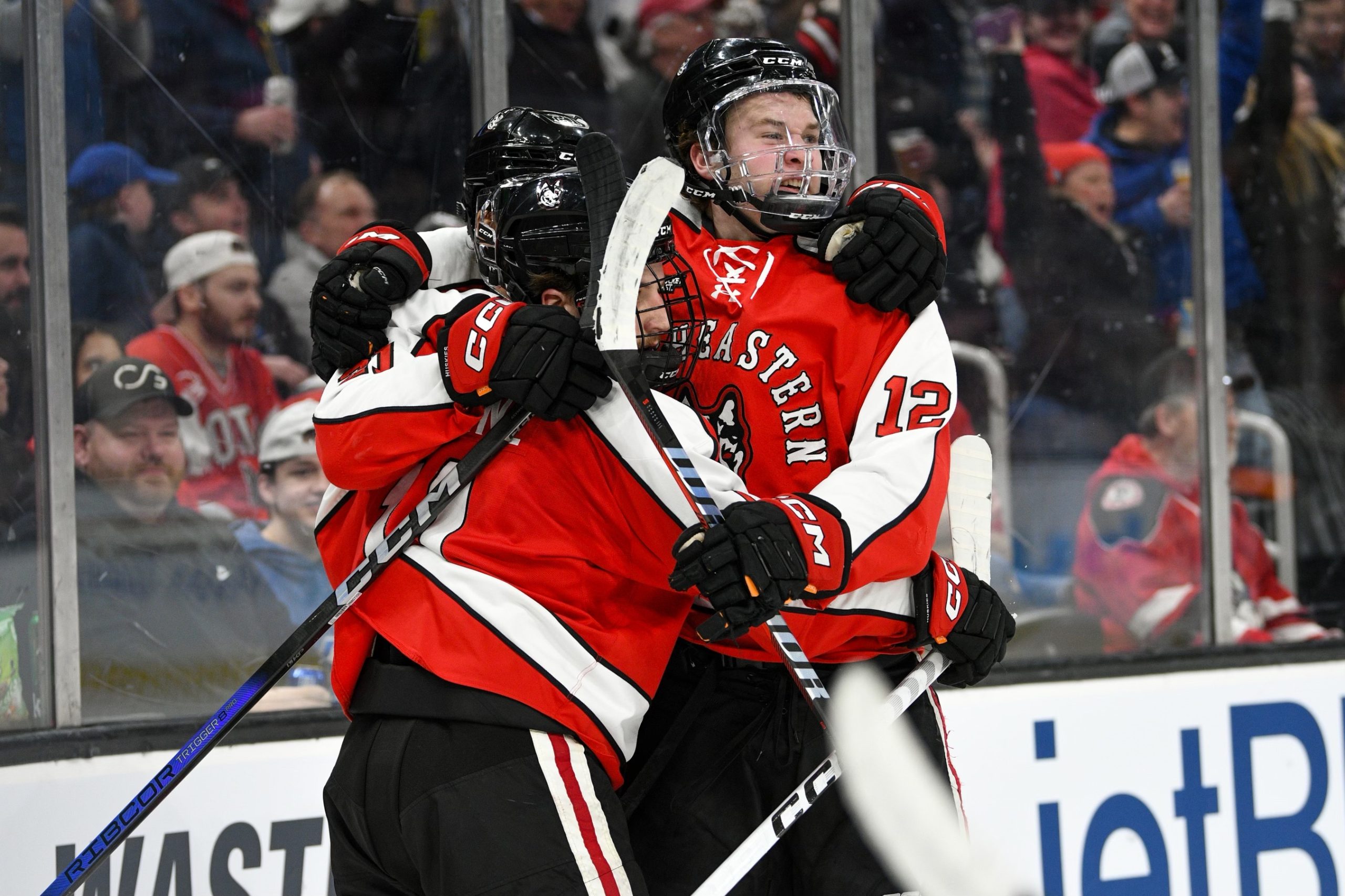
BOSTON — You may say whatever you want about the Beanpot. Yes, it’s a geocentric event with only the same four teams from the Boston area participating year in and year out.
Outside of the Bay State, maybe the interest is limited though NHL Network carried this year’s feed and ESPN used to place the event on its top network years ago.
To the four participating schools, winning is everything, which could feel weird happening at the same time these schools are also competing for league titles, playoff positioning and NCAA berths. The trophy does mean a lot to these institutions.
But given the time of the year, the four games played at TD Garden over the first two Mondays in February can mean as much to each team’s national positioning as any strange shaped trophy such as the Beanpot itself.
Teams have felt great entering the tournament, lost two games including a consolation game typically played in front of a few hundred fans, and dropped from NCAA contention to PairWise irrelevance.
This year’s tournament was a little different.
Boston College entered top in the PairWise and even after a loss to Boston University in the semifinals, never fell. A 5-0 win over Harvard in Monday’s consolation game guaranteed the Eagles will remain the top team in the PairWise.
That, though, was no guarantee when BC drove from Chestnut Hill to the West End of Boston on Monday afternoon. Had the Eagles lost, they would have fallen behind North Dakota for the top overall spot in the PairWise.
It might not seem like much, but it certainly can be.
The championship game had a little more on the line. Boston University entered as the third ranked PairWise team. A win, loss or tie might not have felt consequential, but losing in regulation would have meant shortening the gap between both Wisconsin and Michigan State.
That could, with a few more speed bumps, result in a second seed in a region versus a top seed, something that could also result in shipping the Terriers away from one of the two eastern-located regions of Providence, R.I., and Springfield, Mass.
So as much as the trophy meant to the Terriers and Huskies – and believe it when it’s said, it means everything – the position for BU in the national picture was also on minds.
Monday’s championship game, a back-and-forth dramatic overtime thriller won by Northeastern in what most would consider an upset over the No. 3 team in the nation, could end up having bigger PairWise implications.
No, it won’t bump the Huskies into any sort of an NCAA at-large position. That ship has all but sailed. But it certainly could slightly damage Boston University.
Let’s look at some numbers for the Terriers. Had they won in regulation (BU led, 3-2, after two periods) they would have improved their RPI to .6102. Though they would’ve remained third in the PairWise, BU would have been just .0009 – read that as nine-ten-thousandth of a percentage point – behind North Dakota, the second team in the PairWise.
Losing in overtime dropped the Terriers slightly, to .6037. Sure, they’re still sitting in third and probably feel comfortable in that position with Wisconsin currently at .5964. But that difference of about .0080 is felt (had BU lost that game in regulation, their RPI would be .6005, so maybe there is a silver lining).
For those not indoctrinated to the PairWise and, more importantly the RPI, these fractional differences mean tons. The difference between .6012 and .6037 might be two wins against certain teams. And not having that little fractional advantage could mean the difference between a number one and number two seed in the NCAA Tournament.
And as already mentioned, for a team like, say, BU it could mean the difference between playing in Springfield or Providence and Maryland Heights, Mo.
So while it is understandable for many to shrug off the Beanpot; we get it, you’re not from Boston. The importance of the tournament, though, always seems to mean more than just an odd-shaped trophy in the overall college hockey landscape.



